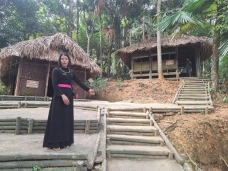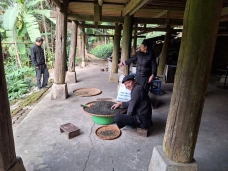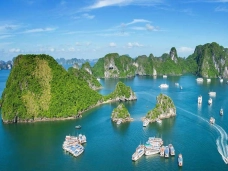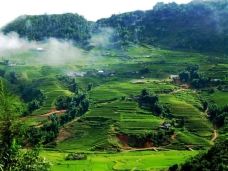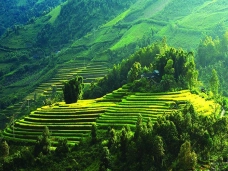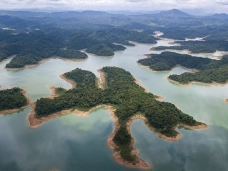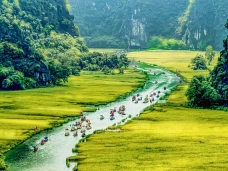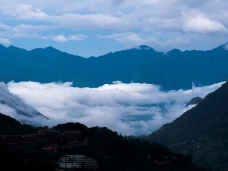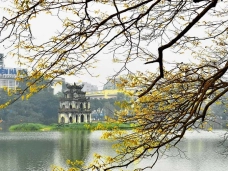Dien Bien - History and Culture
22-03-2024 16:27
Location
Highlight Image
Historical Context
After World War II, the independence movement in the French colonies in Indochina was stronger than ever. Vietnam, under the leadership of President Ho Chi Minh and the Vietnamese Labour Party (later the Communist Party of Vietnam), declared independence on September 2, 1945, laying the groundwork for the struggle for independence against the French military. Vietnam's struggle for independence officially erupted and lasted until 1954.
Dien Bien Phu Campaign
The Dien Bien Phu Campaign was the pinnacle of the resistance against France. Under the skillful command of General Vo Nguyen Giap, the Vietnamese People's Army launched a sudden and powerful attack on the Dien Bien Phu fortress, considered the "impregnable fortress" of the French army. After 56 days and nights of fierce fighting, from March 13 to May 7, 1954, the Vietnamese army and people achieved a miracle, forcing the French forces to surrender unconditionally, opening up a new direction for the liberation movements worldwide.
Historical and Cultural Values
The victory at Dien Bien Phu contributed to changing the political map of the world, affirming the spirit of independence and self-reliance of the Vietnamese people, and serving as an inspiration for liberation movements in Asia, Africa, and Latin America. Dien Bien Phu is not only a symbol of victory but also a profound lesson about willpower, solidarity, and the desire for freedom and independence of the Vietnamese people.
Ethnic Diversity
Dien Bien is the homeland of many ethnic minorities such as the Thai, H'Mong, Khơ Mú, Dao, and Giáy, along with other ethnic groups like Lự and Si La. Each ethnic group in Dien Bien contributes to the diverse cultural landscape of the province. Culinary culture, arts, architecture, and traditional festivals are not only a source of pride for the community but also attractive features for tourists visiting Dien Bien. This diversity also lays the foundation for sustainable development in the region, as the preservation and promotion of traditional cultural values are increasingly emphasized.
The Thai ethnic group in Dien Bien has a rich culture, expressed through traditional costumes, stilt house architecture, and unique festivals such as the water splashing festival and Xên Bản festival. Their costumes are often decorated with beautiful patterns, reflecting their skillfulness and sophistication. The stilt houses of the Thai people are meticulously built, with thatched roofs and high floors, reflecting a close relationship with nature.
The H'Mong people in Dien Bien are famous for their colorful traditional costumes made from thick fabric and embellished with intricate hand embroidery. They have many unique customs and festivals such as the Gầu Tao festival, one of the largest and most important festivals of the H'Mong people, held at the beginning of the new year to pray for a prosperous harvest.
The Khơ Mú people in Dien Bien live closely with the mountains and forests. They make a living through hunting, gathering, and farming. The Khơ Mú people preserve many traditional customs, including ancestor worship rituals and community festivals. Their traditional musical instruments and dances are also remarkable, reflecting a strong community spirit.
The Dao people in Dien Bien have distinctive traditional costumes with unique headscarves and intricately embroidered clothes. They are also known for their unique customs, such as head shaving ceremonies and traditional herbal baths, demonstrating profound knowledge of traditional medicine.
The Giáy people in Dien Bien mainly live in valleys and along rivers, with a tradition of developing wet rice cultivation. Their traditional costumes are relatively simple but elegant, often made from white or light-colored fabrics. The Giáy people have a rich culinary tradition with many exquisite dishes such as square cakes and round cakes, reflecting community spirit and family cohesion.
Dien Bien is not only an attractive tourist destination with important historical sites such as the bunker of Colonel de Castries, the Dien Bien Phu Victory Museum, or Hill A1, but also a place to educate young generations about the glorious historical traditions of the nation. Through the ups and downs of history, Dien Bien still stands as a symbol not only of past victories but also of development and peace in the future.
Similar destination
14-04-2024
Hạ Long - A World Natural Heritage
22-03-2024
Moc Chau, Son La Province
22-03-2024
Mai châu - Hòa Bình
22-03-2024
Thanh Hóa Province – Culture and History
22-03-2024
Ninh Bình – History and Culture
22-03-2024
Sapa - People and Nature
22-03-2024





